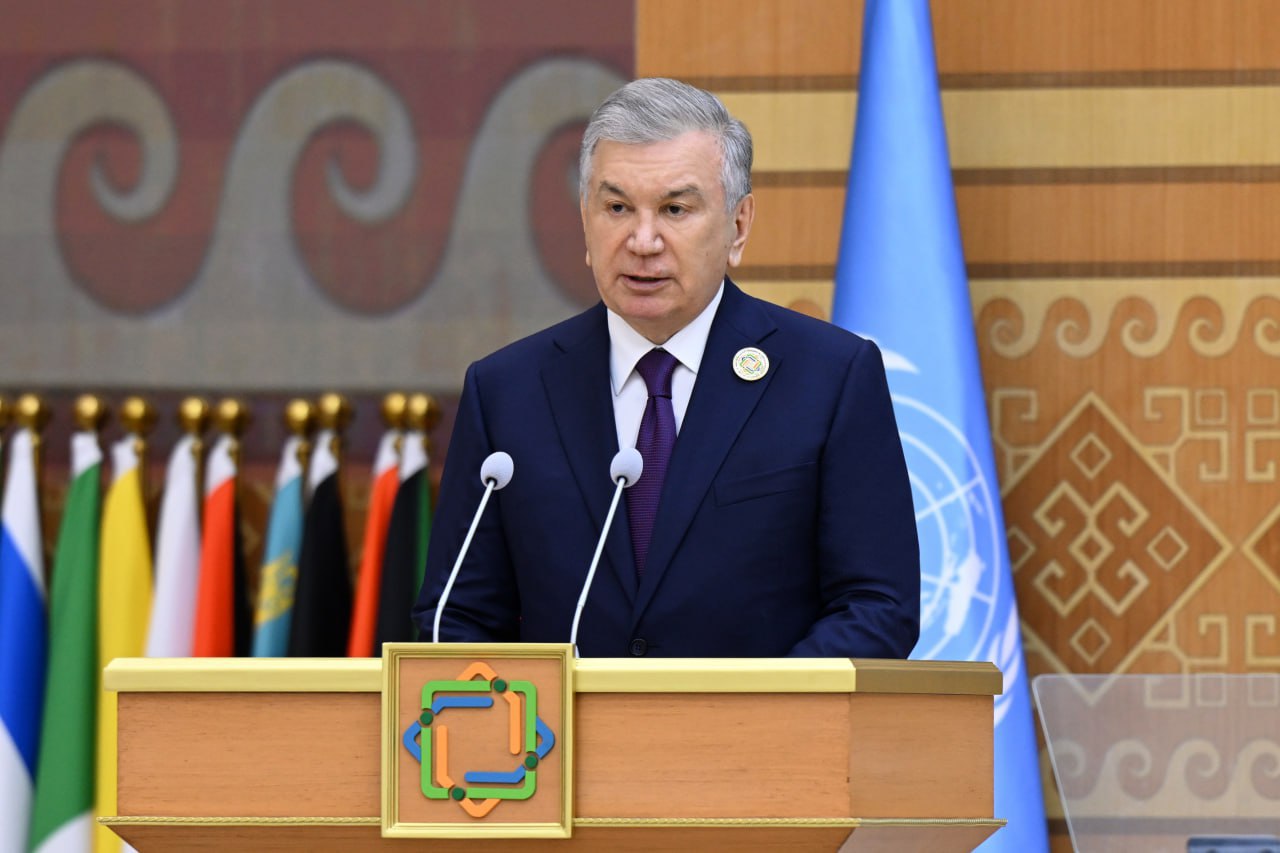BAKU, Azerbaijan, November 12. In mid-November, Tashkent will once again become the focal point for all of Central Asia. The city will host the 7th Consultative Meeting of the region’s heads of state - a forum that has firmly established itself on the political calendar and has become more than just a tradition; it symbolizes a new stage in Central Asian unity.
Uzbekistan plays a central role in this process, not only hosting the current summit but also initiating the format itself. The country was at the origin of this initiative and has remained its main driving force over the years. The meetings were launched by President Shavkat Mirziyoyev, whose policy of openness and good-neighborliness effectively rebooted regional relations.
When Central Asian leaders gathered for the first meeting in Astana in March 2018, few could have imagined that this platform would become a permanent and in-demand mechanism for aligning positions. Today, these consultative meetings are far more than a diplomatic ritual - they are an effective format for addressing concrete issues and advancing shared goals.
A new phase of regionalization began in 2016, when Uzbekistan, under President Mirziyoyev, embarked on a path of building trustful relations with its neighbors. Long-standing barriers were swiftly removed: the visa regime with Tajikistan was lifted, air and rail connections were restored, and border delimitation processes began. This revitalized regional cooperation, boosting trade, tourism, and people-to-people contacts.
"Coordinated and coherent approaches by Central Asian countries will allow us to achieve shared goals of regional development and prosperity," President Mirziyoyev emphasized during a visit to Turkmenistan, at a meeting preparing for the Tashkent summit.
Under Uzbekistan’s chairmanship, a framework for leadership and a schedule of joint events were adopted. Throughout the year, meetings have been held with secretaries of security councils, intelligence chiefs, ministers of industry, energy, water management, and environment, as well as media and youth forums. Before year-end, an interparliamentary forum, meetings of defense, trade, and transport ministers, and a series of cultural and humanitarian initiatives are planned.
To shape a new agenda for regional partnership, Tashkent is preparing conceptual documents aimed at strengthening the legal and regulatory foundation of the consultative process. At the upcoming meeting, Uzbekistan plans to propose initiatives to deepen political dialogue, expand transport connectivity, promote cross-border trade, and launch new drivers of economic cooperation.
The summit will also focus on water and energy cooperation, climate action, and sustainable natural resource management.
At last year’s meeting in Astana, the heads of state adopted the “Central Asia–2040” concept—a document outlining long-term cooperation goals. Its main objective is consolidating efforts and transforming the region into an independent center of growth and stability.
The region is already showing tangible results. In the past five years, intra-regional trade has grown by over 80%, exceeding $11 billion, with the potential to reach $15 billion. President Mirziyoyev proposes taking this further, considering the creation of a unified regional market as a strategic goal, beginning with the establishment of an Economic Council where deputy prime ministers meet regularly.
"We need new drivers and a new model for long-term economic partnership. Our countries are natural trading partners, and our national economies complement each other. <...> Our strategic goal should be to form a unified regional market in the long term," the president stated.
The development of transport routes and logistics infrastructure has become a central theme of cooperation. Thanks to its favorable geographic position, Uzbekistan is actively shaping a new transport architecture for Eurasia.
Uzbekistan is transforming from a landlocked country into a regional hub. Large-scale investments in dry ports, multimodal centers, and railways allow Tashkent to strengthen its position in the Trans-Caspian corridor, which links China, Central Asia, the Caucasus, and Türkiye, opening new opportunities for diversifying external economic ties.
However, with opportunities come challenges: border crossing capacity, the need to standardize customs procedures, and tariff coordination. Here too, Uzbekistan is acting systematically, engaging international partners from the UAE, Türkiye, and beyond.
Tashkent also pays close attention to security issues. According to the president, the international agenda has gradually shifted attention away from Afghanistan, but the region cannot ignore what is happening at its borders. Mirziyoyev has proposed developing a comprehensive regional security and stability concept to respond collectively to challenges.
Additionally, the president has proposed new integration initiatives in tourism, including a unified 'one tour – entire region' product and mutual recognition of national IDs. These steps could not only strengthen humanitarian ties but also give an economic boost.
It is now clear: the consultative meeting format is not just established; it has become part of the region’s political culture. Over eight years, Central Asian countries have learned to listen to each other, seek compromise, and develop joint solutions.
Much of this is thanks to Tashkent. Under Shavkat Mirziyoyev’s leadership, the region has moved from mutual grievances and closed borders to open roads, joint projects, and a shared development agenda.
Uzbekistan has turned the idea of regular meetings into an effective mechanism, generating real initiatives - from economic to humanitarian. As a result, Central Asia is becoming an increasingly autonomous and influential region, whose leaders can engage with each other and external partners on equal terms.
The Tashkent summit will underscore the region’s steady path toward integration and mark another step toward building a confident, united Central Asia, with Uzbekistan playing a leading role.







